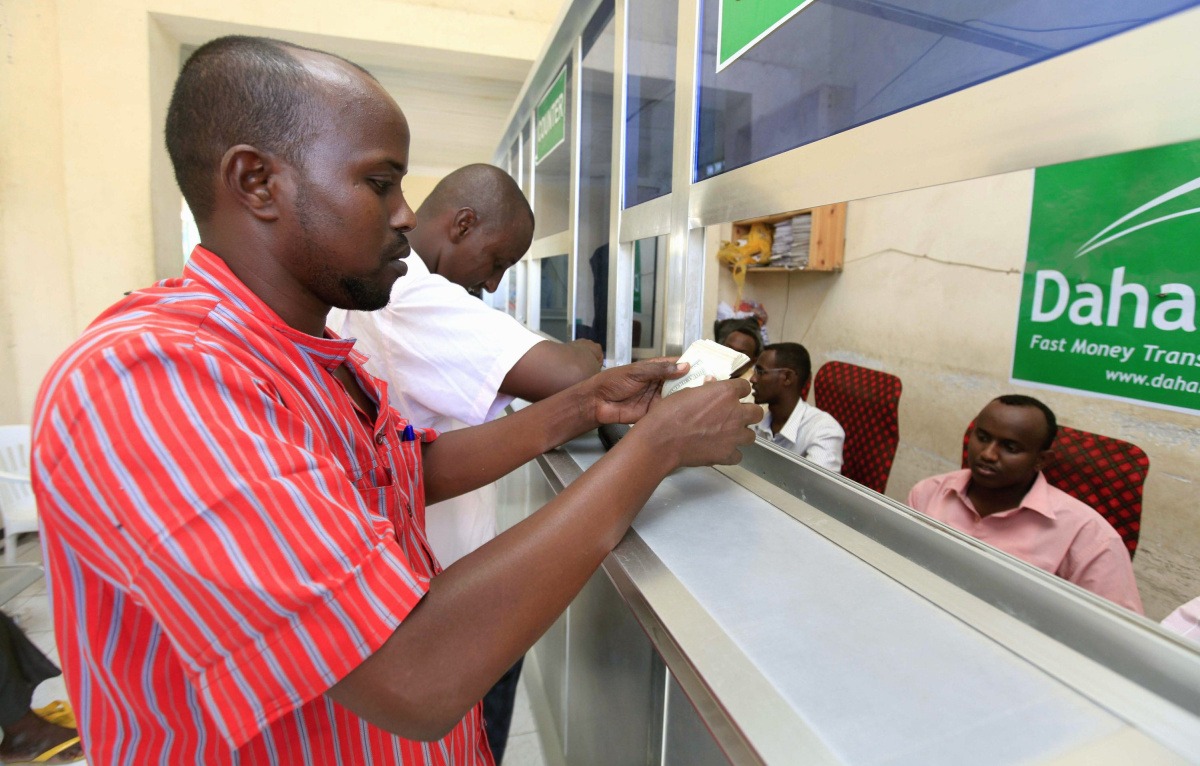London (HAN) October 16, 2015. Public Diplomacy and Regional Security Initiatives News. IF A Somali taxi driver in London wants to send earnings home to his brother, a nomad farmer, he probably uses an informal money transfer business. Going into a Somali-owned shop, he can hand over a wad of cash and within a few hours his brother will receive a text message telling him that his money–minus a commission–is ready for collection. Without either side of the transaction having a bank account, this is an efficient way of transferring cash. Such arrangements, known as hawala, help money flow between poor countries where formal banking is too expensive, heavily-regulated, or simply absent. As much as a third of Somalia’s GDP comes from remittances. Yet since the September 11th attacks of 2001, sending money through such shady, often anonymous networks, has got much more difficult. All money transfer firms must now identify their customers and keep accurate records of transactions.
An example of how one money transfer company is adjusting is provided by Dahabshiil , the biggest international money transfer firm in Africa, founded in the 1970s by a Somali trader, Mohamed Duale, as a way to get around Somalia’s foreign exchange controls. Mr Duale would take foreign exchange from Somali migrant workers in Yemen and use it to buy goods to import into Somalia; with the proceeds from his sales, he paid out to their relatives. Such is a classic hawala system: trust matches transfers between people who want to get money into the country with those who need to get it out, minimising the need to formally transfer across borders. Whatever the balance, it can be moved in cash. But Dahabshiil also provides a classic example of the move from hawala to a more formal system, mostly to satisfy western regulators.
All transactions are now logged; identities of senders and recipients recorded and checked against blacklists. In countries where most people do not have passports Dahabshiil relies on tight-knit clan networks and references to prove identities; it then records biometric information and thumb prints for future checks. To convince western regulators of its security, the hawala system has adapted. The company, once a deeply informal business, is now a sprawling empire.
At the same time, Western firms are learning from the hawala system. Transferwise, a financial technology company based in London, cuts the cost of international money transfers within the west. Instead of moving customers’ money with a wire, for which banks charge hefty fees, it matches people who want to send money in each direction and then transfers the funds between their bank accounts at home. Other technology firms, such as Facebook, are getting in on the money transfer business too. Perhaps, despite the regulations, it is banking—not hawala—which is the out-of-date system. Economist


Leave a Reply